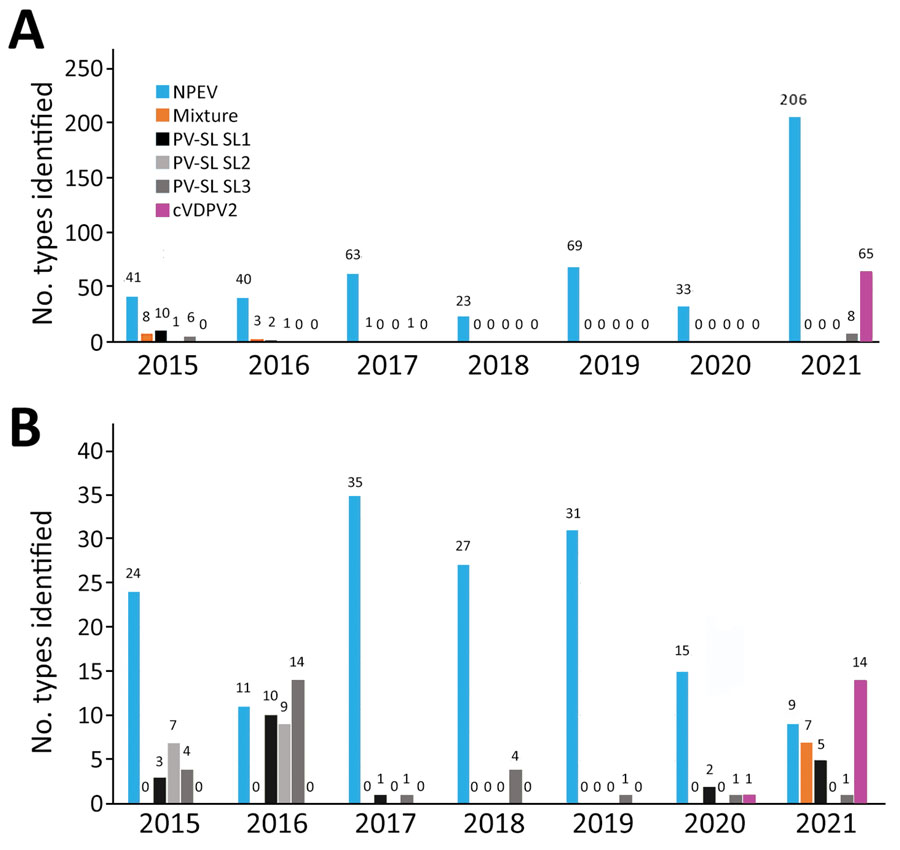Volume 28, Number 10—October 2022
Research
Importation and Circulation of Vaccine-Derived Poliovirus Serotype 2, Senegal, 2020–2021
Figure 1

Figure 1. Temporal distribution of enterovirus isolates detected in Senegal during 2015–2021. A) Enteroviruses detected from acute flaccid paralysis surveillance, including all human specimens (cases, close contacts, and community contacts). B) Enteroviruses detected from environmental surveillance. cVDPV2, circulating vaccine-derived poliovirus serotype 2; NPEV, nonpolio enterovirus; PV-SL, Sabin-like poliovirus.
Page created: August 11, 2022
Page updated: September 20, 2022
Page reviewed: September 20, 2022
The conclusions, findings, and opinions expressed by authors contributing to this journal do not necessarily reflect the official position of the U.S. Department of Health and Human Services, the Public Health Service, the Centers for Disease Control and Prevention, or the authors' affiliated institutions. Use of trade names is for identification only and does not imply endorsement by any of the groups named above.